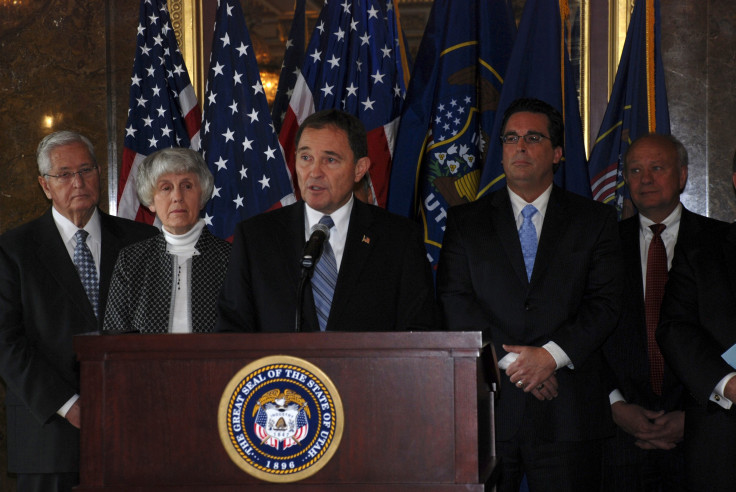Utah Drops ‘Show Me Your Papers’ Immigration Provision

Utah state officials agreed this week to drop parts of a controversial law that allowed police to check a person’s immigration status during a routine stop. The move comes just days after President Obama announced a sweeping set of executive orders on immigration reform, and is the latest example of a gradual retreat from restrictive immigration laws across the country.
State authorities and civil rights groups, including the American Civil Liberties Union, reached a settlement on Tuesday to drop parts of Utah’s fiercely debated 2011 immigration law. In June, a federal judge tossed out several other provisions of the law that criminalized harboring undocumented immigrants and allowed authorities to arrest people solely on the basis of suspecting they were undocumented.
The “show me your papers” provision required law enforcement to check the immigration status of anyone arrested for a serious crime, but also allowed them to verify the status of those stopped for more minor infractions, such as traffic violations. Opponents of the law said it encouraged racial profiling and induced fear among the state’s immigrant communities.
“Utah joins nearly half a dozen other states in realizing that punitive racial profiling laws have no place in their law books,” said Shiu Ming Cheer, a National Immigration Law Center staff attorney, in a news release about the settlement.
States across the country began passing restrictive immigration laws around 2010 to combat what officials said was a failure of federal policy to adequately address illegal immigration in the U.S. Arizona’s punitive SB 1070 law influenced similar legislation in states like Utah, Alabama and Georgia. The Supreme Court struck down several parts of SB 1070 in 2012, but kept the “show me your papers” provision intact. Last year, Alabama settled with the Department of Justice to block several parts of its law, including a requirement for immigrants to register their status with the state and a measure criminalizing transporting undocumented immigrants.
Over the past several months, federal courts have struck down several of Arizona’s other immigration enforcement laws, including one denying bail to undocumented immigrants in jail, and another that made smuggling immigrants a state crime.
© Copyright IBTimes 2024. All rights reserved.












